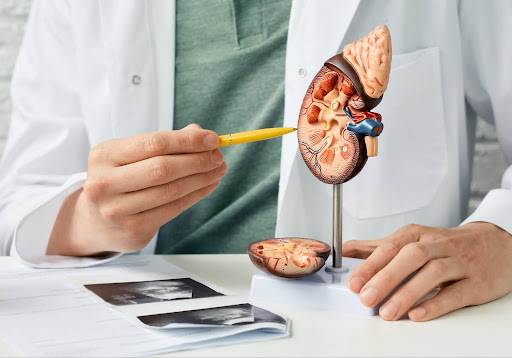
There is no debate that exercise and activity contribute to the foundation of good overall health, and the same goes for maintaining optimum urologic health. However, it’s important to take steps to prevent injuries or other urological issues from developing in certain sports and activities. From using improper or faulty equipment to dehydration, numerous factors may impact your urologic health. In this blog, we’re sharing the steps you should take to ensure you minimize the damaging effects of sports while still reaping the other health benefits inherent in these activities.
High-Contact Winter Sports
Testicular trauma is most frequently due to the combination of activity, and risky behavior that accompanies it—in most cases, avoiding risky behavior altogether can prevent damage to your kidneys, bladder, and testicles. We tend to see an increase in this risk-taking behavior during the winter months when sledding, ice skating, skiing, and snowboarding are more popular. Because these activities are seasonal, we don’t get the necessary practice throughout the year. Many people believe they can pick up the activity at the same skill level they finished the last winter season. People are more likely to injure themselves doing too much too soon in an attempt to pick up where they left off, so it’s always recommended to start slow and to pay special attention to weather conditions at the start of the winter season. Along with taking your time and knowing your surroundings, always make sure you have the proper gear and equipment to minimize injuries of any kind.
Contact Sports
Soccer, baseball, lacrosse, and even hockey are all examples of contact sports that can lead to sports-related genitourinary injuries. In these fast-moving games, it can be easy for accidents to happen. Accidental kicks to the groin, contact with a helmet or other hard surface, or the impact of a fast-moving ball can all lead to serious damage to the testicles. In order to prevent this trauma from occurring, proper protection through the use of a cup is necessary and should be used on boys as early as 6 to 8 years of age.
High-Impact Activities
Testicular trauma may seem like one of the more obvious problems to take place during sports. Still, you may be surprised to find that one of the activities that impact your urologic health is not even considered a contact sport. In a 2018 study, female volleyball players were found to have a 116% chance of developing stress urinary incontinence compared to women who play other types of sports. In other non-contact sport such as running, exercise-induced hematuria can develop in athletes who participate in long endurance events, very intense events, or in those that are poorly hydrated. This benign bladder condition is one in which blood is present in the urine. Fortunately, this exercise-induced hematuria typically resolves on its own after the conclusion of the physical activity. In these situations, staying hydrated can help prevent bladder issues from forming.
The Bottom Line
Sports, running, and other activities that get you moving are an integral part of living a healthy life, but ensuring that you are safely participating in these activities is crucial for avoiding potentially damaging side effects. When it comes to activities that may impact your urologic health, wearing the proper equipment, staying hydrated, and practicing pelvic floor exercises are steps you can take to protect yourself.
Make an Appointment
To diagnose and treat any common problem related to your urological health, request an appointment with one of our providers. Our team has years of experience treating issues of the urinary tract and bladder. Alliance Urology Specialists is here to answer all of your questions, including questions about activities that may impact your urologic health. For scheduling and inquiries, please call our office in Greensboro at (336) 274-1114.

